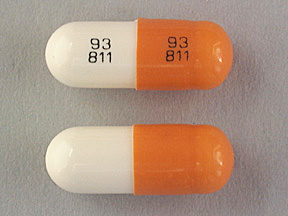
Nortriptyline Coupons & Savings Card – Discount Prices from $12.90
Generic for: Pamelor
Nortriptyline, known by the brand name Pamelor, is a tricyclic antidepressant (TCA) used to treat depression in adults. It is sometimes also used off-label for certain types of nerve pain. Nortriptyline works by helping to balance certain natural chemicals in the brain, such as serotonin and norepinephrine, which play a key role in regulating mood. This medication is available in both capsule and liquid forms to be taken orally. Common side effects include dry mouth, dizziness, and potential weight gain. Always consult your healthcare provider for advice tailored to your specific needs before starting any new medication.
Our coupons are free to use. Before paying, show the pharmacist your Nortriptyline savings card to get your free discount. Use our filters below to edit the prescription box to match your needs. The Nortriptyline prices will update based on your prescription needs. Above our Nortriptyline coupons, you can change your location to see pharmacy prices and costs in other areas. We're here to help you buy Nortriptyline at the lowest price with our prescription discount card.
My prescription
Edit
25MG, Nortriptyline (30 Capsules)
Select pharmacy

CVS
$21.03
COUPON PRICE
Walgreens
$12.90
COUPON PRICE
Albertsons
$13.84
COUPON PRICE
Walmart
$17.49
COUPON PRICENortriptyline savings card
Show this card to your pharmacist
Walgreens
$12.90
BIN
ID
PCN
GRP
019876
LHD6621967
CHIPPO
LHX
Powered by
Nortriptyline, known by the brand name Pamelor, is a tricyclic antidepressant (TCA) used to treat depression in adults. It is sometimes also used off-label for certain types of nerve pain. Nortriptyline works by helping to balance certain natural chemicals in the brain, such as serotonin and norepinephrine, which play a key role in regulating mood. This medication is available in both capsule and liquid forms to be taken orally. Common side effects include dry mouth, dizziness, and potential weight gain. Always consult your healthcare provider for advice tailored to your specific needs before starting any new medication.
Our coupons are free to use. Before paying, show the pharmacist your Nortriptyline savings card to get your free discount. Use our filters below to edit the prescription box to match your needs. The Nortriptyline prices will update based on your prescription needs. Above our Nortriptyline coupons, you can change your location to see pharmacy prices and costs in other areas. We're here to help you buy Nortriptyline at the lowest price with our prescription discount card.
More prescriptions for depression
coupons from$42.67Save 44%
coupons from$6.26Save 92%
coupons from$10.54Save 84%
coupons from$20.85Save 92%
coupons from$11.29Save 65%
coupons from$4.00Save 87%
coupons from$74.39Save 71%
coupons from$5.97Save 94%
More prescriptions for depression
Phenelzine Sulfate Save 44%coupons from $42.67
Aripiprazole Save 92%coupons from $6.26
Zoloft Save 84%coupons from $10.54
Perphenazine-amitriptyline Save 92%coupons from $20.85
Wellbutrin Sr Save 65%coupons from $11.29
Lexapro Save 87%coupons from $4.00
Olanzapine-fluoxetine Save 71%coupons from $74.39
Duloxetine Save 94%coupons from $5.97
Nortriptyline dosage forms
Use our Nortriptyline 10MG coupon with prices from $9.09 for 1 Capsule. You can also use our Nortriptyline 10MG coupon with prices from $10.89 for 20 Capsules. We have a Nortriptyline 10MG coupon with prices from $11.84 for 30 Capsules. You can use our Nortriptyline 10MG coupon with prices from $13.26 for 45 Capsules.
Dosage Quantity Price from Per unit 10MG 1 Capsule $9.09 $9.09 10MG 20 Capsules $10.89 $0.54 10MG 30 Capsules $11.84 $0.40 10MG 45 Capsules $13.26 $0.29 10MG 50 Capsules $13.74 $0.28 10MG 60 Capsules $14.68 $0.24 10MG 90 Capsules $25.65 $0.28 10MG 100 Capsules $26.83 $0.27 10MG 120 Capsules $29.20 $0.24 10MG 500 Capsules $55.50 $0.11
| Dosage | Quantity | Price from | Per unit |
|---|---|---|---|
| 10MG | 1 Capsule | $9.09 | $9.09 |
| 10MG | 20 Capsules | $10.89 | $0.54 |
| 10MG | 30 Capsules | $11.84 | $0.40 |
| 10MG | 45 Capsules | $13.26 | $0.29 |
| 10MG | 50 Capsules | $13.74 | $0.28 |
| 10MG | 60 Capsules | $14.68 | $0.24 |
| 10MG | 90 Capsules | $25.65 | $0.28 |
| 10MG | 100 Capsules | $26.83 | $0.27 |
| 10MG | 120 Capsules | $29.20 | $0.24 |
| 10MG | 500 Capsules | $55.50 | $0.11 |
| 25MG | 30 Capsules | $12.90 | $0.43 |
| 25MG | 1 Capsule | $9.13 | $9.13 |
| 25MG | 20 Capsules | $11.60 | $0.58 |
| 25MG | 28 Capsules | $12.64 | $0.45 |
| 25MG | 45 Capsules | $14.85 | $0.33 |
| 25MG | 50 Capsules | $15.50 | $0.31 |
| 25MG | 60 Capsules | $16.80 | $0.28 |
| 25MG | 90 Capsules | $29.70 | $0.33 |
| 25MG | 100 Capsules | $31.00 | $0.31 |
| 25MG | 120 Capsules | $33.60 | $0.28 |
| 25MG | 180 Capsules | $41.40 | $0.23 |
| 25MG | 270 Capsules | $50.87 | $0.19 |
| 25MG | 500 Capsules | $71.80 | $0.14 |
| 50MG | 1 Capsule | $9.17 | $9.17 |
| 50MG | 15 Capsules | $11.54 | $0.77 |
| 50MG | 20 Capsules | $12.38 | $0.62 |
| 50MG | 30 Capsules | $14.07 | $0.47 |
| 50MG | 50 Capsules | $17.45 | $0.35 |
| 50MG | 60 Capsules | $19.14 | $0.32 |
| 50MG | 90 Capsules | $33.21 | $0.37 |
| 50MG | 100 Capsules | $34.90 | $0.35 |
| 50MG | 500 Capsules | $80.20 | $0.16 |
| 75MG | 30 Capsules | $7.72 | $0.26 |
| 75MG | 60 Capsules | $12.94 | $0.22 |
| 75MG | 90 Capsules | $24.66 | $0.27 |
| 75MG | 100 Capsules | $26.40 | $0.26 |
| 75MG | 500 Capsules | $96.00 | $0.19 |
